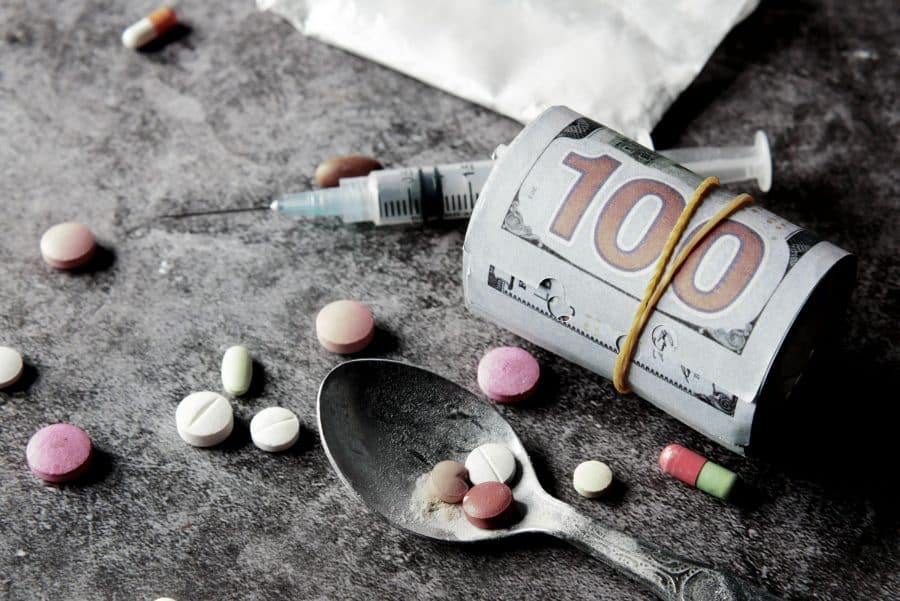Heroin is a highly addictive drug that binds to and activates the opioid receptors in the brain. It acts very quickly and creates a surge of euphoria due to the release of dopamine. It dulls pain, and feelings of contentment can last for hours. However, once someone is addicted to heroin, obtaining and using the drug becomes their primary purpose in life. Nothing else can match up to what they experience when using heroin. With heroin use on the rise, more people are experiencing negative mental and physical health effects that can occur with repeated use.
Undergoing detox
Heroin creates a physical dependence on the drug. Over time, a person becomes tolerant to it and needs more and more of the drug to experience the same sensation that hooked them at the start. This is particularly dangerous because using too much heroin at once can cause a fatal overdose.
Someone who has a heroin addiction should never decide to simply try to detox on their own. Doing so could have serious health consequences and in some situations, it could even be deadly. Medical supervision is necessary when undergoing detox.
Today, it is possible for people to undergo detox and treatment in the privacy of their own homes. Various companies in the U.S., such as Executive Home Detox, Elite Home Detox and Concierge Home Detox, offer in-home detox and addiction services. Florida heroin detox doesn’t require you to visit an inpatient center for weeks or months - it can take place in the privacy and comfort of your home.
Successful rehabilitation
Successful rehabilitation after detox requires ongoing support and individualized attention to address triggers, treat coexisting conditions, and develop healthy coping habits. Heroin addicts may suffer from a complex range of health challenges. Infectious diseases, mental illnesses, and social dysfunction often co-occur with addiction.
Heroin addicts need comprehensive treatment plans after going through detox, and the services offered by in-home detox and addiction services include treatment plans tailored to suit individual patients.
Negative effects of repeated use on mental health
Repeated use of heroin changes the physical structure and physiology of the brain. It changes the brain’s ability to produce its own dopamine and takes over how a user perceives pleasure. Even when use begins affecting relationships, work, and general wellbeing, the user can’t stop thinking about finding and using heroin. This has an effect on decision-making, the ability to regulate behavior, and responses to stressful situations.
Brain inflammation can create dementia-like symptoms, such as confusion, nervousness, personality changes, memory loss, and paranoia.
Mental disorders such as depression and antisocial personality disorder are common. Users often withdraw from their obligations and social activities, partly because of the tranquilizing effects of heroin that preclude their involvement but also because their life revolves around seeking that heroin high.
The long-term mental health effects can last for years, even after detox and therapy. Certain stressors can trigger cravings and addicts need to learn how to address these triggers.
Negative effects of repeated use on physical health
Some of the long-term physical effects of heroin use include:
- Addiction
- Bacterial infections
- Infectious diseases like hepatitis and HIV
- Collapsed veins
- Abscesses
- Infection of heart valves and heart lining
- Rheumatologic problems like arthritis
- Liver and kidney disease
Withdrawal symptoms
Abrupt withdrawal can cause symptoms like pain, diarrhea, vomiting, insomnia, chills, and uncontrolled leg movements. Withdrawal symptoms range in severity depending on the level of dependence and duration of the abuse. The symptoms can be mentally and physically crippling and certain medications can help. There are medications that can help with the physical symptoms and others that can ease cravings.
Major withdrawal symptoms usually reach a peak between 24 and 48 hours after the last dose and reduce in severity after about a week. Sometimes withdrawal symptoms can last longer.
Treatment for addiction
There are a number of medications and behavioral treatments that can help heroin addicts. These approaches help restore a degree of normalcy to brain function and behavior, so integrating them is usually most effective.
Naloxone is an opioid receptor antagonist medication that can block the effects of a heroin overdose if it’s used quickly. Methadone is a long-acting opioid agonist medication shown to be effective in treating heroin addiction. Naltrexone is an opioid antagonist medication that can only be used after a patient has completed detoxification.
Cognitive-behavioral therapy (CBT) has been shown to effectively treat heroin addiction, especially when applied in concert with medications. Recovery is possible, and many heroin addicts have managed to turn their backs on heroin for good with the help of family support and professional medical care.

Isreal olabanji a dental assistant and public health professionals and has years of experience in assisting the dentist with all sorts of dental issues.
We regularly post timely and trustworthy medical information and news on Fitness, Dental care, Recipes, Child health, obstetrics, and more.
The content is intended to augment, not replace, information provided by your clinician. It is not intended nor implied to be a substitute for professional medical advice. Reading this information does not create or replace a doctor-patient relationship or consultation. If required, please contact your doctor or other health care provider to assist you to interpret any of this information, or in applying the information to your individual needs.


